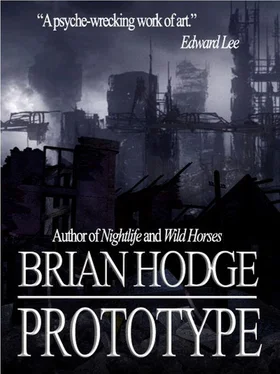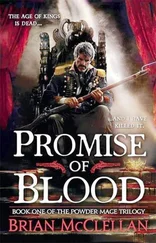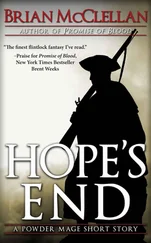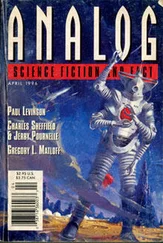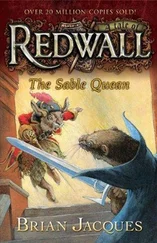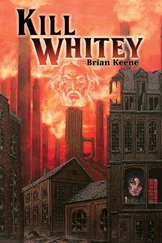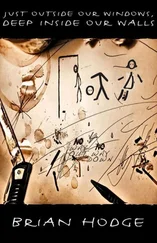What a prophet Nietzsche had proven to be, a century before his time. If only the man had lived to see his concept of the übermensch , the superman destined to rise above the human herd, take form as a biological edict.
If only the man were here now, to seek out as one might seek a guru, for wisdom. Their strained and wretched lives, these first growing pains of a genetic monarchy taking its first wobbly steps toward the throne, might be given succor, balm, and meaning.
He liked to think so, anyway.
“Well, that was an easy eighteen grand I could’ve made,” said Ellie, and she clicked off the television with a snap and flourish of the remote. Smiling at him as she dropped the remote atop the picture on the floor, a vicious little smile that made his skin crawl, made him want to batter it from her face.
Ellie slithered from the chair down to the floor, advancing toward the sectional on all fours, swaying side to side like a predator in torn black tights, white skin luminous through the rips. A panther, stalking slowly and willfully, eyes cruel in their curiosity; violet hair hanging before her face; she blew a lock of it off her cheek with a sharp and feral gust.
“Why not you, Patrick?” saying it soft, saying it low, as she palmed both hands over his knees. “What’s your secret, why so chaste around me? Nobody ever got a madonna vibe off me.” Sliding her hands higher along his thighs.
He caught her wrists and held them; thin little twigs, he could have broken each. And twenty years ago, might have broken her wrists and flipped her over; he’d have torn her clothing free and made her regret she had ever thought of seducing him. Shown her what seduction had brought — the beast that, once awakened, could not be put back in its cage.
But twenty years could change a lot, cancer even more. The same name but hardly the same man, the Patrick Valentines of then and now connected primarily by strands of DNA.
“I like whores,” he said. “You’re not a whore.”
They did have their merits. Anonymity, and the assurance that you never had to look the same one in the eye again if you’d rather not. And you could pay them to never, ever mention that they noticed your deformity. Actresses in the end, they could lay a hand on you and pretend you were whole. Their faces would never betray the shocks that would cause a normal woman to snatch her hand back as if defiled by a malignant void. Whores were just dandy that way.
And Ellie laughed.
“Then what do you call me?” she asked, drawing back, not one visible wound from the rejection; just a game she played. So little real power she possessed, but that she did, she was certainly aware of. “I mean, you’re paying all the bills here, it makes me something.”
She was right. Although he had yet to decide upon the term.
These were the most unlikely of missives, and would take serious contemplation to assimilate into his worldview.
Had he believed in any thinking power greater than himself, this could have been a guardian angel come to his aid.
Had he believed in prayer, this might have been an answer.
But Clay believed in neither — so what other than a fluke could it be? He had a Boston postmark and nothing else, an entire city in which to plant his imaginings… who it must be, and why, and how this relayer had come by the information that Adrienne and her backers thought too sensitive to let him in on.
He had at first suspected it to be more of their chicanery: We’ll poke him this way, see how he responds. But it had continued as if according to a deliberate agenda, heedless of his reaction, by someone who might not even have a means of gauging it. Tantalizing rations of information, one envelope per week with something new. First the general overviews, then the pictures. This week, case studies of the five North American Helverson’s subjects known before he had been tagged as number six. Keep this up, before long he would be as informed as Adrienne. Maybe more so.
Maybe that was the plan.
He could face the east, as if toward Mecca, and come close to sensing some distant kindred heart, beating in a stranger’s chest. Who are you and how do you know my name, how do you know my aberration?
And just what does it matter to you?
Whoever it was, this person had touched his life from across the country, and while no name had yet been shared, in a sense he felt a little less alone, and far less dependent on psychotherapy. He had been snipped free from the bureaucratic umbilical cord of a think tank in a desert city into which he had wandered by chance. He didn’t need them anymore.
He had this .
And Clay realized why he could not believe in angels: They were obsolete. What was their job but to bring information, to herald announcements? Now they had been bettered. The messengers of the information age had fiber-optic wings; their chariots, jets filled with sacks of airmail; their trumpet knell from the sky, now the programming of satellites in orbit. The angels had fallen, clipped and shorn.
And if it would have been nice to believe in the comfort of their radiant presence, the welcome rustle of their wings, rather than in the cold hard hum of technology, at least the latter was dependable. It required no more than the touch of a button, and was there whether he believed in it or not.
Go ahead, he directed toward the east, more than a thought, not quite a whisper. You started this, now finish it. You know what I am, and whoever you are, you probably don’t know why I’m this way any better than I do… but can you at least tell me if I can be anything more…?
Or if this is all there is, all there ever will be. All there ever can be.
Save me.
While the anger at a world he had not asked to join — not in this mutant body, at least — often seemed too much, more and more it seemed as if it simply were not enough.
* * *
She came into the apartment the way she had come into his life a few years back — quietly, hesitantly, even sadly, and Clay supposed his first thought was but an echo of an earlier one, maybe even the very first thing he had thought about her: She looks broken.
Footsteps soft and small across the floor — she was walking as if even her legs had been snapped and were not to be trusted. No video camera with her for a change, both arms busy hugging across her front. Erin shed her coat, then sank onto the couch beside him and they were bathed in the news anchor’s chatter from the TV. She remained so still he had to check to make sure she was breathing.
“What’s wrong?” he asked.
Her hair straggled like yellowed weeds from beneath her hat. “What do I smell like?”
Clay frowned, almost laughed. Finally bent close enough to put his nose to her, where Erin’s slim neck curved into shoulder.
“Soap,” he said. “Shampoo.”
Oh, she seemed to mouth, full lips pale, pressing together. When she looked at him, her face could have been no more naked had she been skinned alive.
“Is that all?”
He tried again and got nothing, nothing more than the city through which she had come, the city and the cold. She smelled of December, but didn’t they all?
“I think so,” he said. “Is there something I missed?”
No answer, just Erin, Erin on a winter’s evening as a chill gripped the attic apartment the way it always did when dusk turned black. Thin veins of frost rimed the windows, and she went to one such web, as if drawn, hypnotized. She looked at the frost as a jumper looks at a ledge; it became her entire world. She scraped a fingertip along the pane, a white crescent of ice thickening beneath her nail.
Читать дальше
